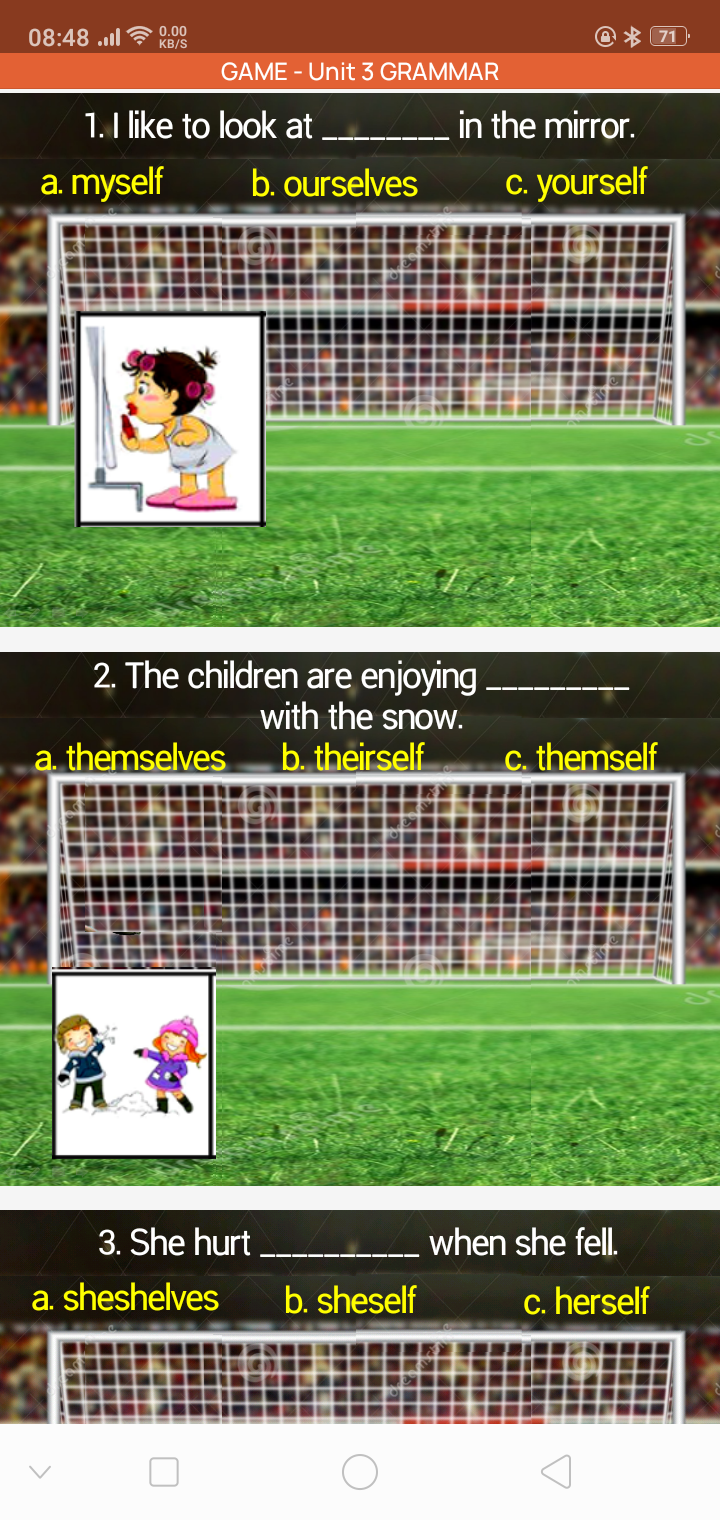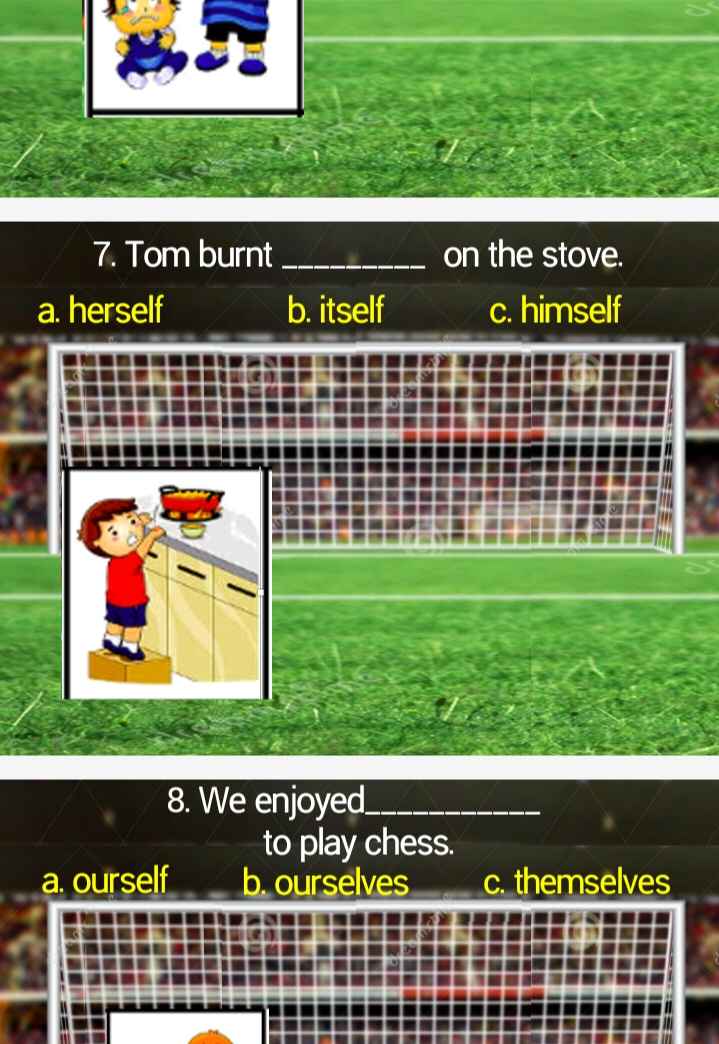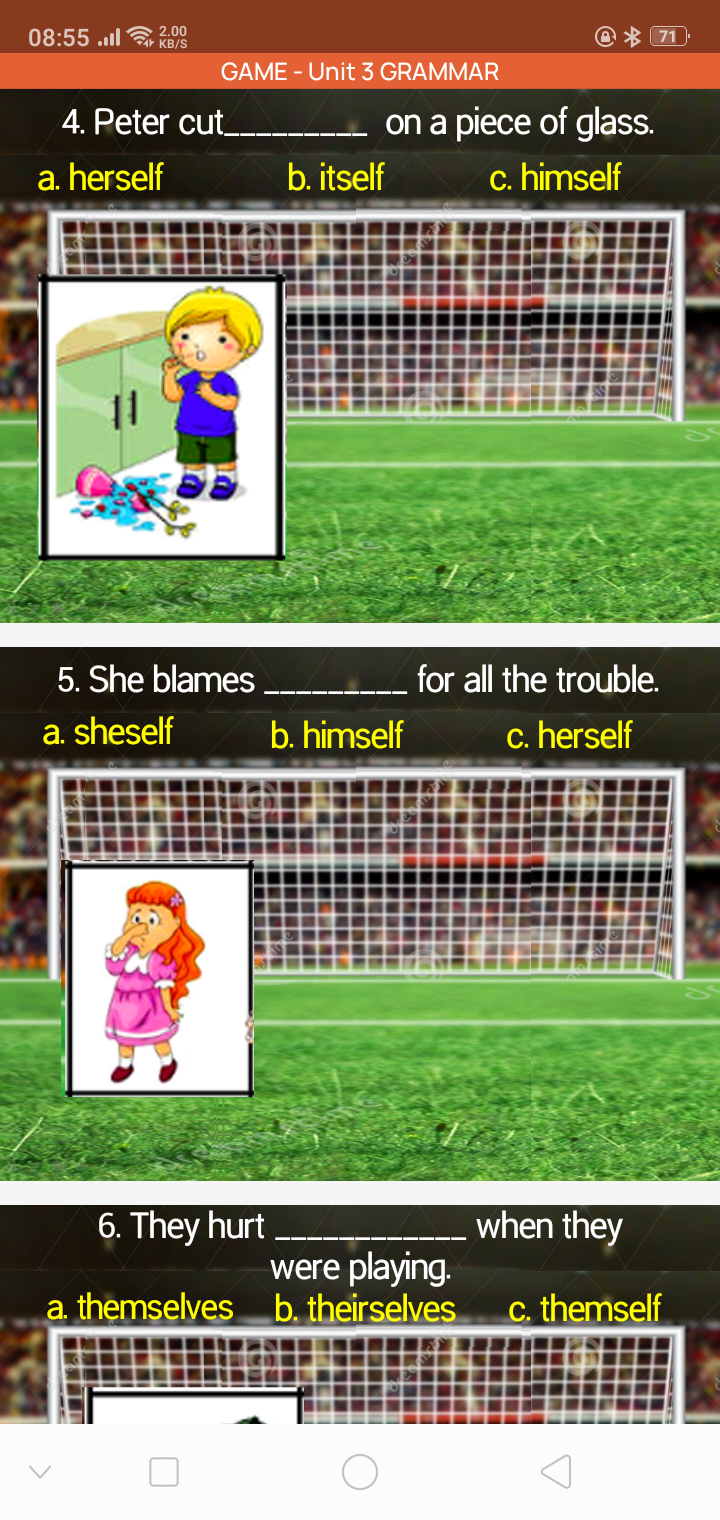Complete these sentences with can / can't, could / couldn't or be able to ( correct form). Sometimes it is possible to use more than one modal verb 1) Tom ........... drive but he hasn't got a car2) I can't understand Martin. I've never ........... understand him3) He had hurt his leg, so he .......... walk very well 4) She wasn't at home when I phoned, but I .......... contact her at the office5) I looked very carefully and I ......... see a figure in the distance 6) I used to...
Đọc tiếp
Complete these sentences with can / can't, could / couldn't or be able to ( correct form). Sometimes it is possible to use more than one modal verb
1) Tom ........... drive but he hasn't got a car
2) I can't understand Martin. I've never ........... understand him
3) He had hurt his leg, so he .......... walk very well
4) She wasn't at home when I phoned, but I .......... contact her at the office
5) I looked very carefully and I ......... see a figure in the distance
6) I used to .......... stand on my head but I can't do it now
7) They didn't have any tomatoes in the first shop I went to, but I .......... get some in the next shop
8) My grandmother loved music. She ........... play the piano very well
9) Ask Ann about your problem. She should ............ help you
10) The boy fell into the river but fortunately we ........... rescue him












Type the correct modal verb into the box.
can couldn't have to might must ought to shouldn't was able